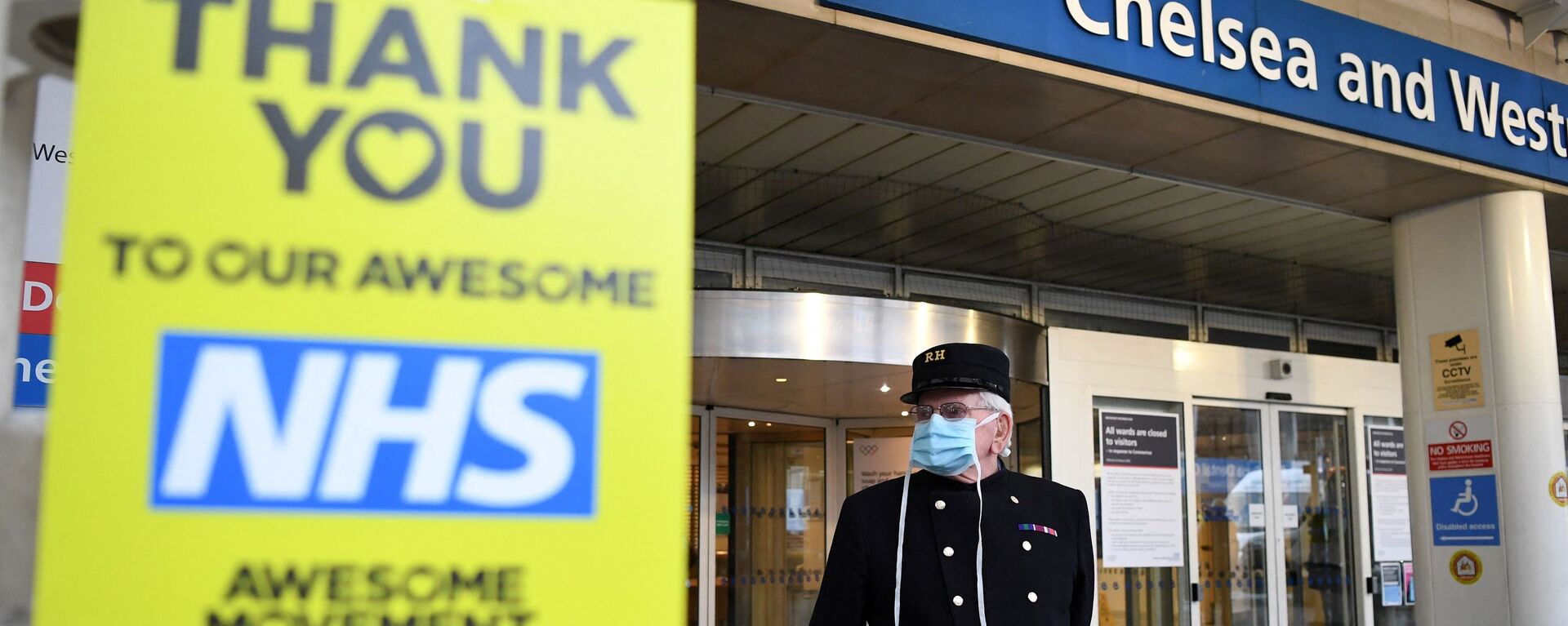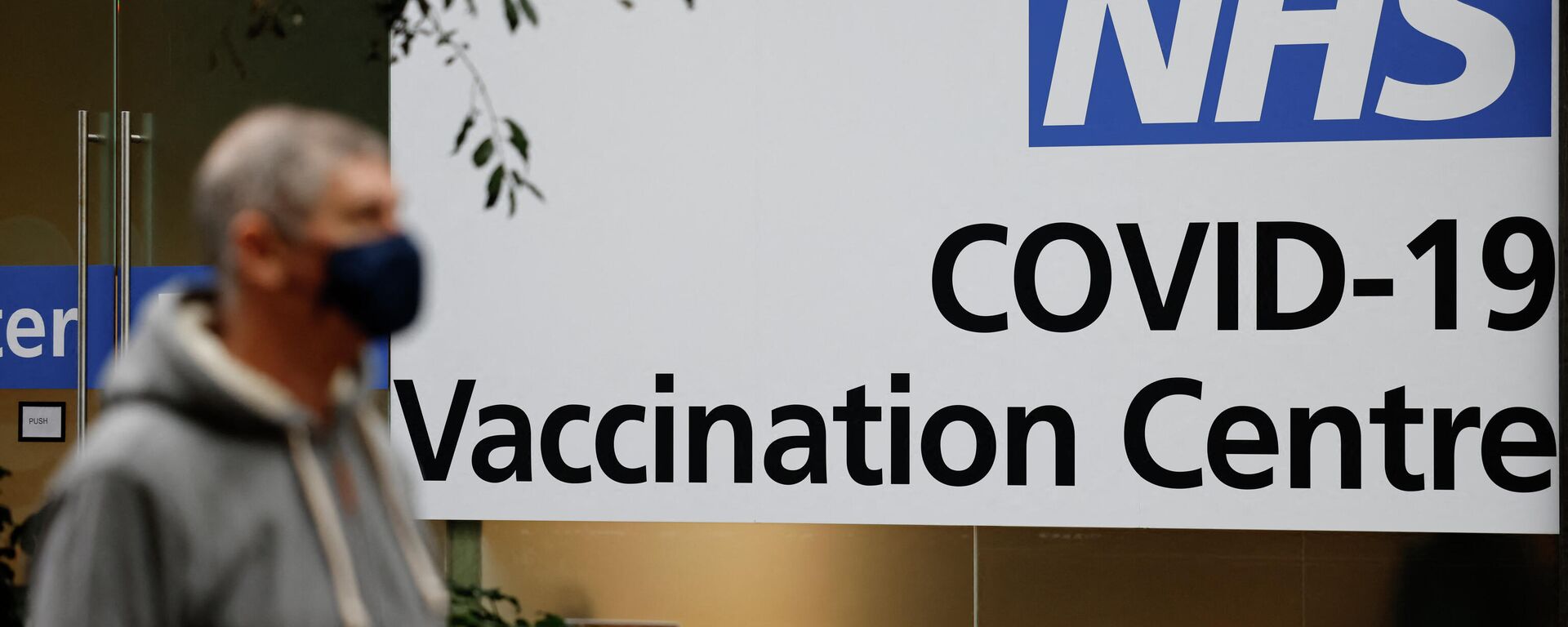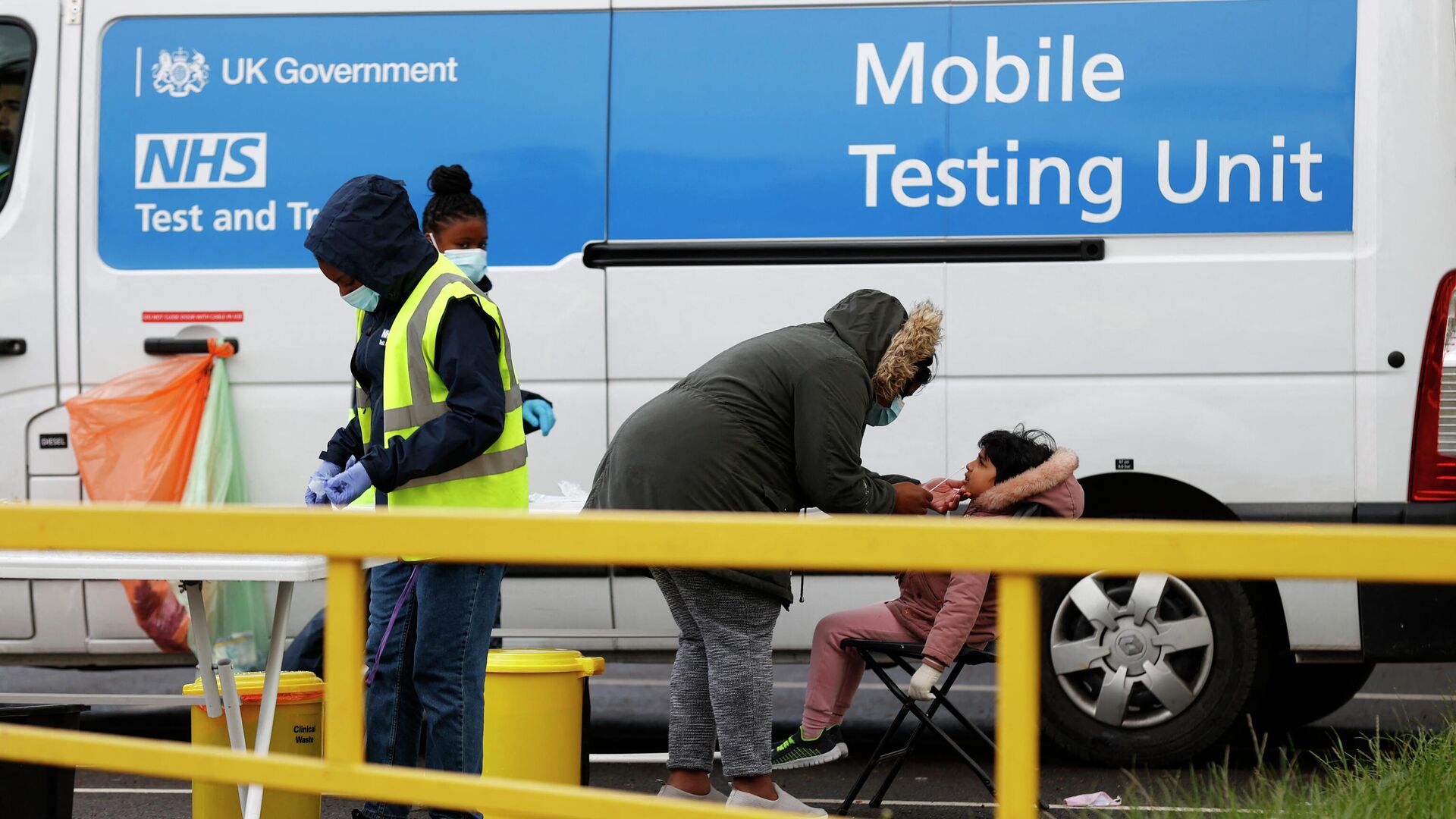https://sputnikglobe.com/20220107/200-british-troops-sent-to-london-hospitals-to-help-nhs-tackle-staffing-crisis-1092085961.html
200 British Troops Sent to London Hospitals to Help NHS Tackle 'Staffing Crisis'
200 British Troops Sent to London Hospitals to Help NHS Tackle 'Staffing Crisis'
Sputnik International
Around 200 personnel from the armed forces are being deployed to hospitals across London to help the National Health Service (NHS) England tackle its workforce shortages.
2022-01-07T08:10+0000
2022-01-07T08:10+0000
2023-05-28T15:24+0000
london
national health service (nhs)
troops
staff
deployment
united kingdom (uk)
https://cdn1.img.sputnikglobe.com/img/07e6/01/07/1092085686_0:161:3071:1888_1920x0_80_0_0_4fd08b6e5cb3b88cbf9a0cf8b1fdb233.jpg
Around 200 personnel from the armed forces are being deployed to hospitals across London to help the National Health Service (NHS) England cope with its workforce shortages.The Ministry of Defence pledged in a statement on Thursday that it would provide 40 defence medics and 160 general duty personnel over the next three weeks. The deployment aims to fill gaps caused by the absence of NHS staff who are ill or have to self-isolate due to the spread of Omicron, the new coronavirus variant.Defence Secretary Ben Wallace, for his part, said that the armed forces would again be working "hand-in-hand" with NHS staff "to protect the nation from COVID-19". Exactly a year ago, army personnel were sent to London amid the peak in coronavirus-related hospital admissions. Armed Forces Minister James Heappey told Sky News about London's request "for support for hospitals that are struggling with winter pressures and Omicron", stressing that the military is "able to help by sending personnel in to help with both clinical and administrative tasks".Jane Clegg, the regional chief nurse for the NHS in London, said that they were "thankful for the support of the armed forces alongside thousands of NHS staff, as they respond to the increased demands brought by COVID - ensuring continued high-quality care and treatment for the many Londoners being looked after by the NHS this winter".She spoke as the Royal College of Nursing (RCN) argued the deployment of military personnel indicates a "staffing crisis" within the NHS.The remarks came a few days after the PM said that he hopes England can "ride out" the current wave of the coronavirus without imposing further restrictions, but admitted that parts of the NHS would feel "temporarily overwhelmed" by the Omicron variant.Nationwide, the number of confirmed COVID cases in the last seven days (1,272,131) has increased by nearly 30% as compared to the previous week, while the death toll (1,094) is up more than 56%, according to the UK Health Security Agency's estimates.
https://sputnikglobe.com/20211224/nhs-on-a-war-footing-facing-soaring-hospitalizations-due-to-omicron-covid-strain-staff-off-sick-1091767021.html
https://sputnikglobe.com/20211110/sajid-javid-announces-compulsory-covid-vaccination-for-nhs-workers-starting-april-2022-1090611450.html
london
united kingdom (uk)
Sputnik International
feedback@sputniknews.com
+74956456601
MIA „Rosiya Segodnya“
2022
Oleg Burunov
https://cdn1.img.sputnikglobe.com/img/07e4/09/0b/1080424846_0:0:2048:2048_100x100_80_0_0_3d7b461f8a98586fa3fe739930816aea.jpg
Oleg Burunov
https://cdn1.img.sputnikglobe.com/img/07e4/09/0b/1080424846_0:0:2048:2048_100x100_80_0_0_3d7b461f8a98586fa3fe739930816aea.jpg
News
en_EN
Sputnik International
feedback@sputniknews.com
+74956456601
MIA „Rosiya Segodnya“
Sputnik International
feedback@sputniknews.com
+74956456601
MIA „Rosiya Segodnya“
Oleg Burunov
https://cdn1.img.sputnikglobe.com/img/07e4/09/0b/1080424846_0:0:2048:2048_100x100_80_0_0_3d7b461f8a98586fa3fe739930816aea.jpg
uk, nhs, staff shortages, covid, omicron
uk, nhs, staff shortages, covid, omicron
200 British Troops Sent to London Hospitals to Help NHS Tackle 'Staffing Crisis'
08:10 GMT 07.01.2022 (Updated: 15:24 GMT 28.05.2023) In late December, Pat Cullen, head of the Royal College of Nursing, revealed that London-based HNS staff are often working 14-hour shifts to make up for the healthcare agency's staff shortages amid a surge in COVID infections.
Around 200 personnel from the armed forces are being deployed to hospitals across London to help
the National Health Service (NHS) England cope with its workforce shortages.
The Ministry of Defence pledged in a statement on Thursday that it would provide 40 defence medics and 160 general duty personnel over the next three weeks. The deployment aims to fill gaps caused by the absence of NHS staff who are ill or have to self-isolate due to the spread of Omicron, the new coronavirus variant.

24 December 2021, 05:43 GMT
Defence Secretary Ben Wallace, for his part, said that the armed forces would again be working "hand-in-hand" with NHS staff "to protect the nation from COVID-19". Exactly a year ago, army personnel were sent to London amid the peak in coronavirus-related hospital admissions.
"They [the servicemen] have shown their worth time and again throughout this pandemic, whether driving ambulances, administering vaccines, or supporting patients in hospital and they should be proud of their contribution to this truly national effort", Wallace stressed.
Armed Forces Minister James Heappey told Sky News about London's request "for support for hospitals that are struggling with winter pressures and Omicron", stressing that the military is "able to help by sending personnel in to help with both clinical and administrative tasks".
"This will help nursing staff deliver on the wards while soldiers and sailors do some of the other things for them. Sailors and medics will be working with doctors and nurses but that's not new. We've been doing that throughout the pandemic with trusts throughout the UK. It's also tried and tested for non-clinical personnel to go into hospitals to do administrative tasks to help wards running well", Heappey said.
Jane Clegg, the regional chief nurse for the NHS in London, said that they were "thankful for the support of the armed forces alongside thousands of NHS staff, as they respond to the increased demands brought by COVID - ensuring continued high-quality care and treatment for the many Londoners being looked after by the NHS this winter".

10 November 2021, 05:51 GMT
She spoke as the Royal College of Nursing (RCN) argued the deployment of military personnel indicates a "staffing crisis" within the NHS.
Patricia Marquis, the RCN's director for England, argued that "the prime minister [Boris Johnson] and others can no longer be dismissive of questions about the ability of NHS staff to deliver safe care".
The remarks came a few days after the PM said that he hopes England can "ride out" the current wave of the coronavirus without imposing further restrictions, but admitted that parts of the NHS would feel "temporarily overwhelmed" by
the Omicron variant.
Nationwide, the number of confirmed COVID cases in the last seven days (1,272,131) has increased by nearly 30% as compared to the previous week, while the death toll (1,094) is up more than 56%, according to the UK Health Security Agency's estimates.






